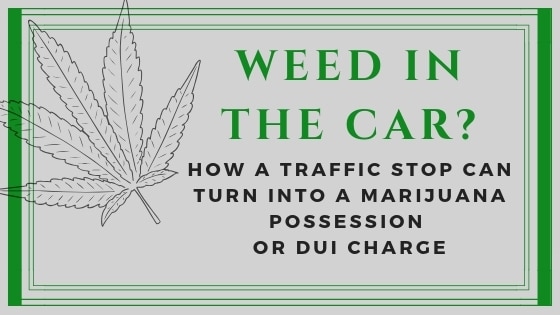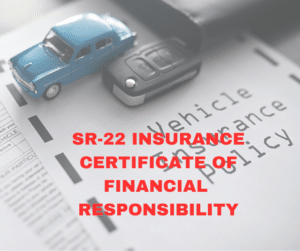
You have weed in the car and the officer wants to ask you about it. What to do?
The best encounter with law enforcement is NO encounter
*This information is not intended to be legal advice because every engagement with law enforcement is so unique. However, the scenarios below are written to provide you some “choose your adventure” type outcomes. Frankly, when it comes to any type of law enforcement stop and marijuana, the results aren’t usually good. Drug arrested are up and, in our opinion, part of that is due to people’s misconception about what constitutes “legal use” of marijuana. If you have specific questions or scenarios that you need an answer to, contact our office for information that encompasses all of your unique case details.
Know the restrictions and know your rights!
While the use of marijuana is legal for those over 21 years of age, that use comes with a mountain of restrictions. You need to know those restrictions and your rights.
Don’t treat marijuana like tobacco. Unlike tobacco, you should never use marijuana in your vehicle. Even if you aren’t moving on a roadway, it is not a lawful place for marijuana use under the statute. Furthermore, if your vehicle smells like marijuana, you are far more likely to be arrested for a marijuana-related DUI. You might find later that you weren’t “impaired” under the statute but that comes weeks after your blood draw and arrest. Remember, in the state of Washington, marijuana can be used on private property where it is not visible to the public. Don’t make your vehicle a moving probable cause station for arrest.
Like alcohol, marijuana must not be stored in an open container near the driver or the passenger. The glove box is not an option for an opened or unsealed container. Make sure your passengers are not placing opened or unsealed packages in a receptacle that is accessible by the driver or passenger.
If you usually carry marijuana in the car, remember two things: 1) drive a car that is not a “PC mobile” (short for the fact that your car is a moving version of probable cause), and 2) store your marijuana lawfully. If you’re driving a mini-van that has a muffler, all lights are working, and your tabs are up to date, the officer will not likely pursue a traffic stop as a precursor to a more serious issue. The same cannot be said of other type of vehicles. Vehicles with “probable cause potential” are viewed differently. If you can not afford to drive a car that avoids such unwanted contact, be careful about what you say and do during a traffic stop.
Harmless questions may be traps!
While an officer can ask you if you have marijuana in the vehicle, the only reason is to build probable cause for an arrest. You can possess marijuana and your answer of “yes” is perfectly fine. However, if you are not storing the marijuana properly under RCW 46.61.745 it gives reason for a citation. The officer will likely ask to search your vehicle (in most circumstances, they would not have a right to do so without your consent or a warrant at this point).
Even if the officer does not search your vehicle, he or she will ask you to step out of the car to conduct FSTs (field sobriety tests). It’s possible a DRE (drug recognition expert) may arrive to conduct field sobriety tests (which you will most certainly fail) but the officer who stopped you may also do the roadside tests. You are not required to do these tests and they being done to further support probable cause for your arrest. At this point, the officer knows there is enough to support probable cause in his report based on your statement that you have marijuana in the car (and he or she will surely write “I smelled the odor of marijuana”). Most likely, the officer will arrest you for suspicion of DUI due to marijuana use. While you might be perfectly fine (not “impaired” under the statute) the blood test will take weeks or months to get back from the toxicology lab. The criminal charge will be “on hold” (dismissed at your arraignment) until the report for the toxicology lab returns. So, best case scenario, you are below the 5ng/ml limit and you just end up with a ticket for your improper storage of weed but you still have an arrest record.
Alternatively, when the officer asks if you have marijuana in the car, it’s possible to tell them that you don’t want to answer that question. Since a regular traffic stop does not trigger the need for Miranda warnings (despite the fact the officer is really trying to get you to incriminate yourself), the officer can ask you about drugs in your car without informing you that you have the right to remain silent. You’ll probably end up arrested anyway but it’s important to be very clear that you don’t want to incriminate yourself. (You’ll still have to provide license and proof of insurance for the traffic stop.) Ask if you are being detained or are free to go. The officer will probably make threats like, “I can have a drug sniffing dog come” or “Why won’t you answer? Do you have something to hide?” Again, ask if you are free to go. If you are not free to go, invoke your right to remain silent and STAY silent.
The officer can and likely will get a warrant. The threshold is low and the officer will make statements such “there is a smell of marijuana” and other assertions that you are impaired. When the officer searches your car, you must be very clear when you state that you do NOT consent to a search. If you seem indifferent or irritated, it doesn’t amount to a lack of consent under the law. You must be very clear that you don’t consent to the search. If you think there is any confusion, it is best to repeat that you are not consenting to the search. You should never resist the officer or the search as it can be used against you later. Just announce verbally in a clear and loud enough voice that you do not agree to any form of search.
Even if you follow these steps correctly, you may end up in jail.
The unfortunate reality is that you are likely going to be booked into jail. Once a roadside investigation into drugs gets going, it rarely ends in you driving away. Your rights are helpful but usually don’t help that much in the moment of a stop and search. What you’re doing by announcing your desire to remain silent and refuse consent to search is preserving your rights for an attorney to argue suppression issues later.
Clearly, it isn’t ideal to have an attorney argue this days or weeks after you’ve gone to jail. No one wants to be arrested particularly when you believe your possession and use of marijuana is lawful. Unfortunately, that is often how things happen. We have many clients who believed they were lawfully in possession and using marijuana in accordance with the statute. Their statements to the officer’s questions were not helpful and, in some cases, very damning for their case.
Remember, an officer has no ability to determine charging of a crime. The prosecutor is the only person who determines what crime, if any, will be charged. Any promises or threats by law enforcement are simple attempts to get you to talk. They are not your friend and “opening up” to them will not help your situation. In fact, everything you open up about will be written in a report later. So, if you feel you must share, be very aware that those statements will be shared with the prosecutor, too!
Again, if you are unsure of how, when, or where to use marijuana, seek information. There are way too many marijuana-related arrests due to misinformation. You can find information on the Washington State Liquor and Cannabis Board website. If you have a specific situation that concerns you, we are also available for free consultations. Be safe and be smart about using.
Witt Law Group is a criminal defense and personal injury lawfirm with offices in Bremerton and Gig Harbor Washington. If you found this article interesting, click on a link below for more related information. Thanks for reading.

Get help now
Whether you choose to handle your case alone or engage the Witt Law Group, being informed and prepared is essential. Early involvement of an attorney can significantly impact your chances of a fair recovery, allowing you to focus on healing while we handle negotiations with insurance adjusters to secure fair compensation for your injuries.




